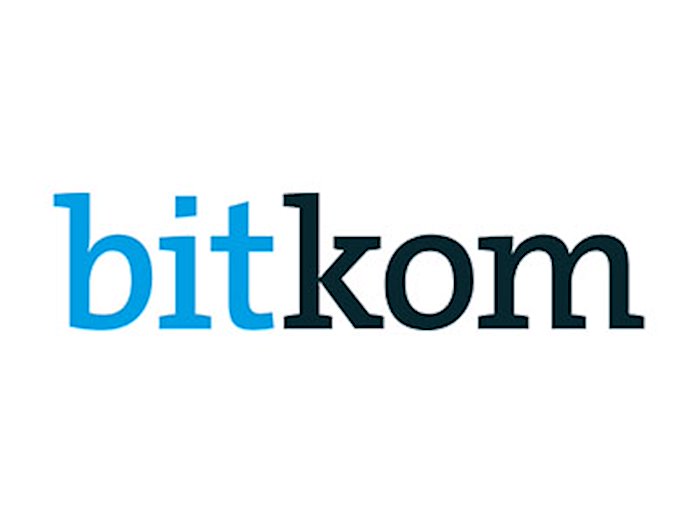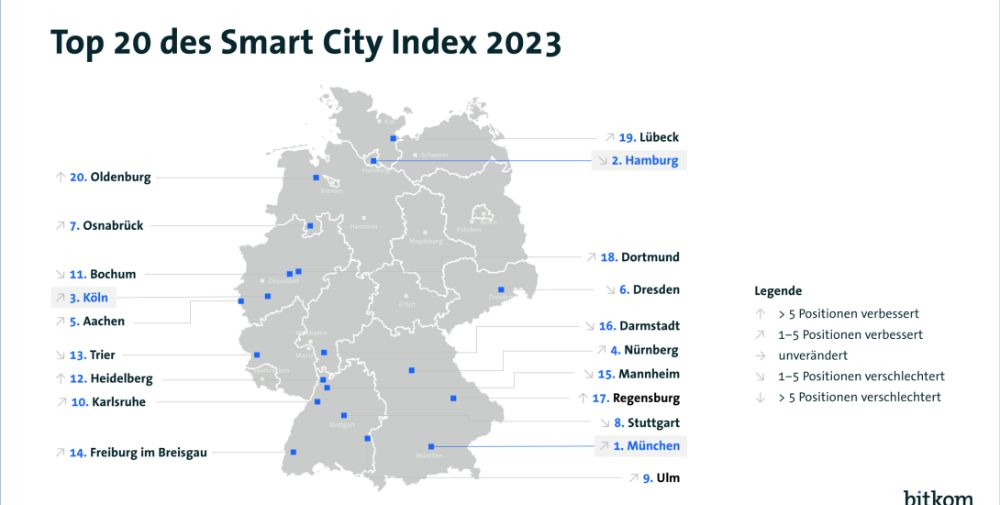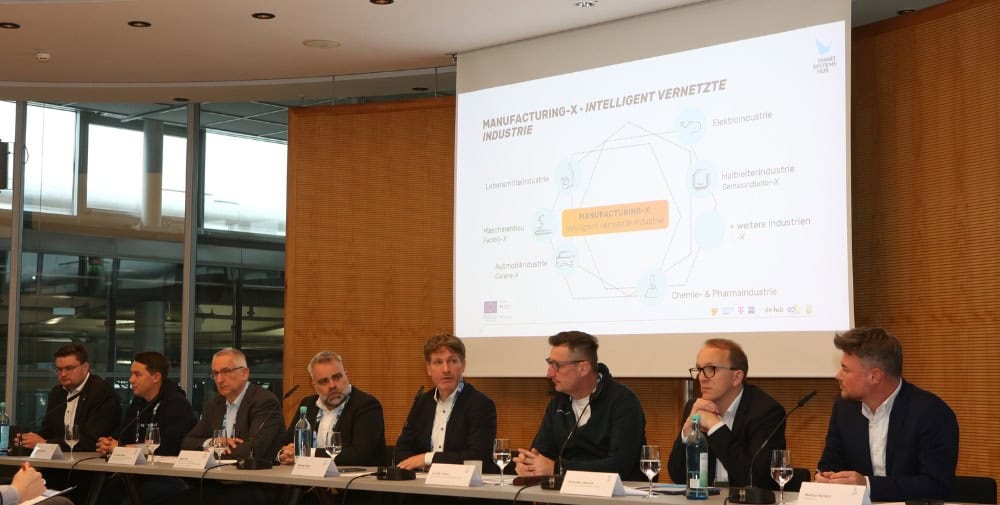
Not only is the gap among the podium places narrow, the top 10 are moving closer together overall. Between place 4 and 10 are only 3.5 points – as little as never before. Ulm (9th with 76.8 points) is in the top ten for the first time, while Osnabrück (7th / 77.6 points) and Karlsruhe (10th / 76.6 points) have returned. Rounding out the top 10 are Nuremberg (4th / 80.1 points), Aachen (5th / 79.3 points) and Stuttgart (8th / 77.2 points).
For all results and details, visit www.smart-city-index.de.
“The fifth Smart City Index shows more accurately than ever the state of digitization of major German cities. We have expanded the indicators examined, and we have also included the important topic of education for the first time. We see great dynamism within the ranking and, for the first time, a change at the top: Munich is able to move just ahead of Hamburg, thus reaping the rewards of the efforts of recent years,” says Bitkom President Dr. Ralf Wintergerst. “However, the top 10 includes not only metropolises such as Munich and Hamburg, but also smaller university cities such as Aachen, Osnabrück and Ulm. This shows once again that you don’t have to be big to be smart. What’s more important is professional management of digitization activities and a joint commitment from local politicians, companies and civil society.”
Taking tried-and-tested digital projects to the larger cities
At the same time, Wintergerst points to major differences in the pace of digitization in the cities. For example, he says, there is a top group among the top 20 that has been well placed in the rankings for years. At the same time, he says, many cities at the back of the pack are struggling to pick up the pace and catch up. “Every year in the research for the Smart City Index, we see how many cities have already implemented great digital projects. What’s often lacking: Bringing individual projects to the surface. The appeal to Berlin and the state capitals is therefore: the federal government and the states should not only promote new lighthouse projects, such as for the use of AI in administration, but should support the roll-out of proven digital solutions much more strongly,” says Wintergerst.
Hidden champions: many cities have strengths in individual areas
The Smart City Index also shows which cities have their strengths in individual areas, even if it is not enough for a top 10 ranking in the overall ranking. In administration, Düsseldorf (3rd, overall ranking 21st), Regensburg (5th, overall ranking 17th), Bochum (6th, overall ranking 11th), Augsburg (7th, overall ranking 29th), Mannheim (9th, overall ranking 15th) and Bielefeld (10th, overall ranking 33rd) perform particularly well. In the energy and environment category, not only Trier (1st, overall ranking 13th) is strong, but also Paderborn (2nd, overall ranking 36th), Wolfsburg (3rd, overall ranking 25th), Münster (6th, overall ranking 30th), Oldenburg (7th, overall ranking 20th), Darmstadt (9th, overall ranking 16th) and Bergisch Gladbach (10th , overall ranking 64th).In IT and communications, Kiel comes in third (31st overall), Oldenburg in 5th (20th overall), followed by Gelsenkirchen (7th, 34th overall), Frankfurt am Main (8th, 22nd overall) and Freiburg im Breisgau (9th, 14th overall). In the mobility category, Berlin narrowly misses out on a podium place (4th, overall ranking 24th), with Frankfurt am Main (6th, overall ranking 22nd), Bonn (7th, overall ranking 26th), Potsdam (9th, overall ranking 48th) and Bochum (10th, overall ranking 11th) also making it into the top 10. In the society and education category, Düsseldorf comes in second (21st overall), and also in the top ten are Darmstadt (5th, 16th overall), Kiel (7th, 31st overall) and Heidelberg (9th, 12th overall).
Cities in Saxony, Baden-Württemberg and Bavaria do particularly well
Depending on the federal state, the major cities vary in their digitalization efforts. As in the previous year, cities in Baden-Württemberg, Bavaria and Saxony perform significantly better than average. Hesse and Rhineland-Palatinate are just above average, while the results in Lower Saxony and North Rhine-Westphalia are below average. However, the number of cities included in the ranking also differs significantly between the states – Saxony, for example, has only three major cities at all, while North Rhine-Westphalia has 30. In fact, no statement can be made for states with fewer than three major cities. It is striking that university cities perform better on average. “In cities with universities, the exchange between science and practice is much easier. Cities also benefit from tech startups with their innovative use of technology and fresh look at challenges. When startups get the opportunity to test smart city applications locally in collaborations, it’s a classic win-win situation,” Wintergerst said.
Rostock and Erfurt make up the most ground
Also beyond the top rankings, there is a lot of movement in the Smart City Index 2023. The biggest climber in the overall ranking is Rostock (65.6 points), which improves 31 places to 40th. Erfurt (54.2 points), which was ranked last last year, has moved up 26 places to 55th. Göttingen (53rd, 57.5 points) has gained 20 places, while Wolfsburg (23rd, 71.3 points) has moved up 19 places. Wintergerst: “Digitization is not a state of affairs in cities either, but a process of constant change.” Compared to last year, Würzburg (48.4 points, overall ranking 71st, down 32 places), Hagen (47.8 points, overall ranking 73rd, down 22 places) and Solingen (58.7 points, overall ranking 52nd) and Gelsenkirchen (67.2 points, overall ranking 34th) have lost significant ground, both slipping 17 places. Ranked 79th to 81st are Remscheid (39.0 points), Magdeburg (38.5 points) and Bremerhaven (35.4 points).
More than 12,700 data points for 81 cities
A total of 12,717 data points were collected, reviewed and qualified for the Smart City Index. All 81 cities with a population greater than 100,000 were analyzed and evaluated, and the five topic areas of administration, IT and communication, energy and environment, mobility, and society and education were examined. The five areas are broken down into 37 indicators, which in turn consist of a total of 157 parameters – from online citizen services, sharing offers and environmental sensors to broadband availability and digital training for teachers and administrative staff. Municipalities were actively involved in the data collection process. Cities were able to provide data on digitization, each supported by sources. Ninety-four percent of cities made use of this – a record high in the history of the Smart City Index. The data was then validated by a team of experts from Bitkom Research. For those 5 cities that had not provided any information on their part, the necessary data was researched at relevant agencies and reliable sources. The Smart City Index is supported by Visa, PwC and Uber.
Smart City Index as interactive online application
The ranking of the 81 major German cities with the results in all sub-areas is available as an interactive online map at www.smart-city-index.de.
Overview: cities with top 10 rankings in individual subject areas
- Aachen: Energy and environment: 8th with 73.9 points, mobility: 5th with 86.7 points, total: 5th with 79.3 points
- Augsburg: administration: 7th with 83.0 points, total: 29th with 69.9 points
- Bergisch Gladbach: energy and environment: 10th with 71.0 points, total: 64th with 52.0 points
- Berlin: mobility: 4th. with 87.3 points, Total: 24th with 71.0 points
- Bielefeld: Administration: 10th with 81.0 points, Total: 33rd with 69.0 points
- Bochum: Administration: 6th with 85.5 points, Mobility: 10th with 80.6 points, Total: 11th with 76.2 points
- Bonn: Mobility: 7th with 82.1 points, Total: 26th. with 70.4 points
- Darmstadt: energy and environment: 9th with 72.9 points, society and education: 5th with 92.1 points, total: 16th with 73.5 points
- Dresden: mobility: 3rd with 90.1 points, society and education: 3rd with 95.5 points, total: 6th with 78.5 points
- Düsseldorf: administration: 3rd. with 89.3 points, Society and Education: 2nd with 96.5 points, Total: 21st with 71.9 points
- Frankfurt am Main: IT and Communication: 8th with 82.4 points, Mobility: 6th with 82.7 points, Total: 22nd with 71.5 points
- Freiburg i. Breisgau: IT and Communication: 9th with 80.7 points, Total: 14th with 74.3 points
- Gelsenkirchen: IT and communication: 7th with 85.3 points, total: 34th with 67.2 points
- Hamburg: IT and communication: 4th with 86.6 points, mobility: 1st with 98.4 points, society and education: 1st with 96.9 points, total: 2nd. with 83.9 points
- Heidelberg: society and education: 9th with 89.9 points, total: 12th with 75.7 points
- Karlsruhe: administration: 8th with 82.4 points, IT and communication: 10th with 79.3 points, total: 10th. with 76.6 points
- Kiel: IT and communication: 3rd with 89.6 points, society and education: 7th with 91.1 points, total: 31st with 69.9 points
- Köln: administration: 4th with 88.5 points, IT and communication: 2nd. with 91.1 points, Mobility: 8th with 82.1 points, Society and Education: 8th with 90.8 points, Overall: 3rd with 83.2 points
- Mannheim: Administration: 9th with 81.2 points, Overall: 15th with 74.2 points
- Munich: Administration: 1st with 94.2 points, IT and Communication: 1st with 97.3 points, Society and Education: 5th with 92.1 points, Overall: 1st with 84.5 points
- Münster: Energy and Environment: 6th with 76.7 points, Overall: 30th with 69.9 points
- Nuremberg: Administration: 2nd with 92.5 points, Mobility: 2nd with 91.3 points, Society and Education: 4th with 93.5 points, Overall: 4th. with 80.1 points
- Oldenburg: Energy and Environment: 7th with 74.8 points, IT and Communication: 5th with 86.4 points, Overall: 20th with 72.0 points
- Osnabrück: Energy and Environment: 4th. with 78.4 points, overall: 7th with 77.6 points
- Paderborn: energy and environment: 2nd with 79.9 points, overall: 36th with 66.1 points
- Potsdam_ mobility: 9th with 80.7 points, overall: 48th. with 61.3 points
- Regensburg: Administration: 5th with 85.7 points, Total: 17th with 73.1 points
- Stuttgart: IT and Communication: 6th with 86.3 points, Total: 8th with 77.2 points
- Trier: Energy and Environment: 1st with 84.9 points, Total: 13th with 75.3 points
- Ulm: Energy and Environment: 5th with 78.2 points, Society and Education: 10th with 89.8 points, Total: 9th. with 76.8 points
- Wolfsburg: Energy and Environment: 3rd with 78.8 points, Overall: 23rd with 71.3 points
– – – –
Further links
👉 www.bitkom.org
👉 Smart City Index 2023
Graphic: Bitkom




